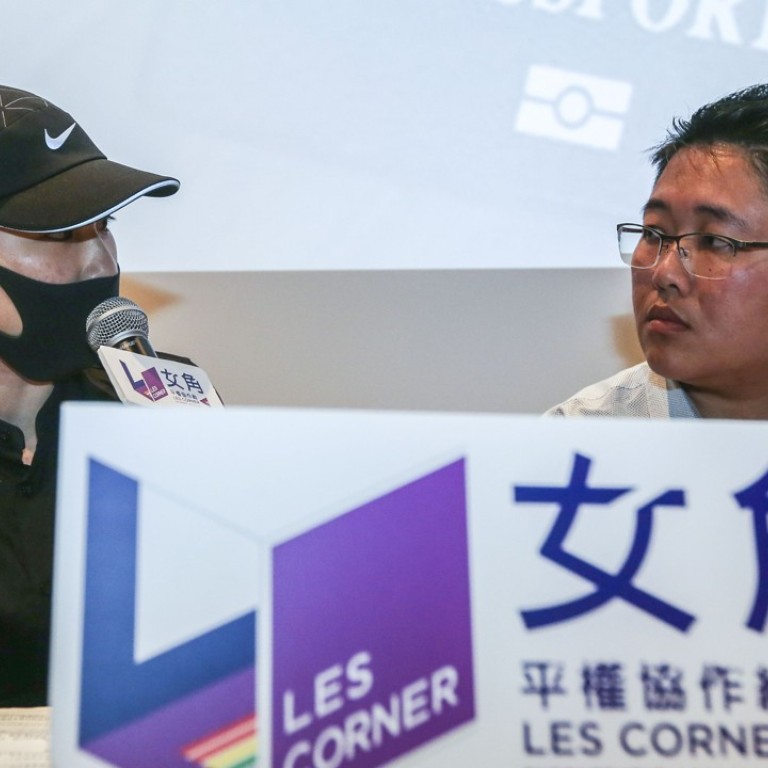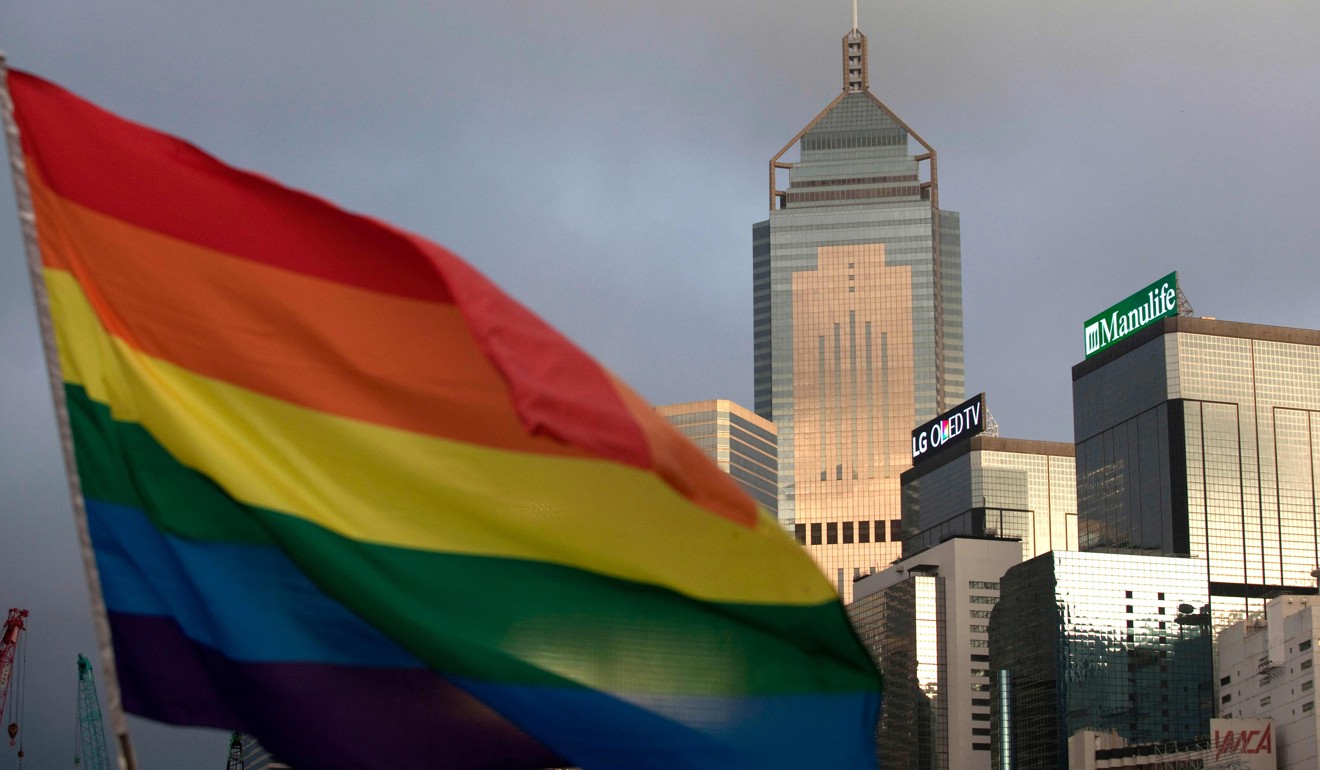
Domestic violence rife among Hong Kong’s female sexual minorities including lesbians, bisexuals, pansexuals and transgenders, survey finds
Three in four respondents said they were victims of either physical, psychological or sexual violence with almost 20 per cent experiencing all three types
Three out of four people from female sexual minorities have experienced at least one type of domestic violence, with many reluctant to seek help from police or social welfare authorities, a survey found.
The survey, by non-profit group Les Corner Empowerment Association, polled 216 people who identified as being from female sexual minorities on their experience with three types of domestic violence – physical, psychological and sexual – among partners in February to April.
Those polled included people who identified themselves as lesbians, bisexual, pansexual or transgenders.
The findings, which were analysed by an associate professor from Chinese University’s department of social work, showed 77.8 per cent of those polled experienced at least one kind of domestic abuse, also known as intimate partner violence.

Some 19.4 per cent said they experienced all three types of domestic violence.
“This prevalence rate is very high,” CUHK associate professor Chen Ji-kang said on Saturday at a press conference on the survey results.
Some 70.8 per cent said they were victims of psychological abuse, such as receiving threats from their partners about committing suicide or revealing their sexual orientation.
Almost half – or 46.3 per cent – said they were physically pushed, attacked or threatened with sharp objects.
Judge rules against transgender inmate’s discrimination claim
Some 23.6 per cent said they were sexually abused, such as being forced into non-consensual sex or being sexually harassed.
The figures were far higher than what was officially reported by the Social Welfare Department, which only received nine cases of abuse among same-sex cohabitants last year.
The prevalence rate of domestic violence among sexual minorities in the LGBT community in other places, such as Taiwan and the United States, ranged between 20 and 78 per cent, according to Chen’s research.
One victim who shared her experience at the press conference said both partners in a relationship could be victims of domestic violence.

“My partner was very emotionally unstable, not only would she throw things at me, she would also inflict pain on herself,” the victim, who only wanted to be identified as Wing, said.
Another finding researchers highlighted was that only 22 per cent of victims said they sought help from police, or social welfare officials, and also cited low satisfaction with how well the authorities dealt with their cases.
Hong Kong may be open to LGBT rights, but acceptance of sexual minorities is still a way off
“They would only choose to seek help from them as a last resort because they worry that they would not know how to handle their problems with enough sensitivity and alertness,” Chen said.
Instead, they would rather turn to close friends for help.
The association, a group that advocates for sexual minorities, said many frontline social workers and police officers were only used to dealing with domestic violence among heterosexual partners, and lacked the professional know-how and sensitivity in handling situations.
Meet the man who helped Hong Kong win 2022 Gay Games host bid
A simple question such as asking what relationship the pair had could be insensitive towards sexual minorities, especially those who had yet to come out of the closet, association chairperson Joe Li Hiu-nam said. Instead, they should rephrase it into a yes or no question – are the two partners?
Both the group and researchers said the results reflected a need to strengthen professional training among frontline social workers and police officers, as well as raise public awareness.

